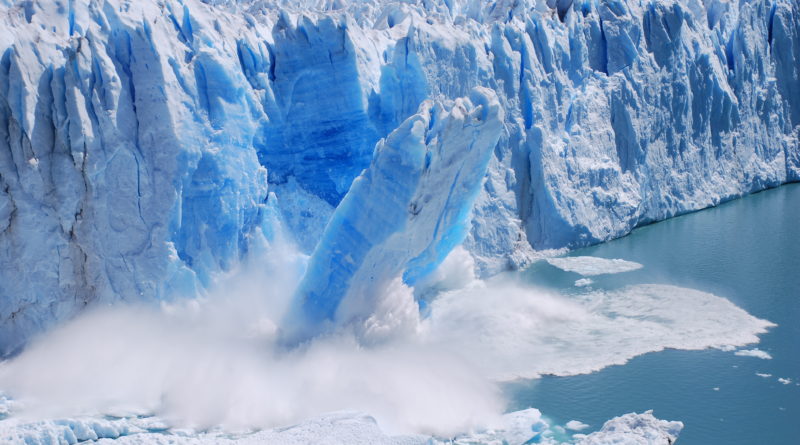New Study Reveals Glaciers Are Rapidly Melting
8,036 total views, 3 views today
According to a new U.S. study, the problem of Antarctic ice melting is even more drastic than previously thought. Currently, the continent is approaching a point past which, even if global temperature rises were to entirely halt, massive Antarctic glaciers would fully melt. This glacial melting would likely trigger monumental sea level rises that would submerge coastal cities and displace millions of people around the world.
This study, which NASA funded, examined the Thwaites glacier, which is one of many Antarctic glaciers. The scientists behind the study discovered that Thwaites is approaching a point of instability that, if reached, will guarantee that its ice will melt and flow into the ocean, triggering a sea level rise of 1.6 feet. This figure may seem tiny at first glance, but the study suggests that most, if not all, Antarctic glaciers are approaching a similar instability point that guarantees their melting. If the study is correct, then the total level of sea rise for which humanity should prepare is far greater than merely 1.6 feet.
The NASA study follows recent reports that another five Antarctic glaciers were losing ice at rates five times faster than in the 1990s. Additionally, these rates represent a doubling of the rate from just six years earlier. The ice loss surveyed in these reports is no longer occurring solely at Antarctica’s coast — on the continent’s inner lands, ice has decreased in thickness in some areas by as much as 328 feet.
Complicating matters is that scientists consider a potential collapse of the Antarctic ice sheet, in the NASA study’s words, the “largest single source of uncertainty” in predicting how much sea levels will rise as global temperatures rise. The study distinguishes between the effects of Antarctic land ice and Antarctic sea ice, a distinction that matters because, since sea ice is already in the ocean, its melting doesn’t change the total volume of water in the ocean. On the other hand, since land ice has never been part of the ocean, when it melts and flows into the ocean, the consequences on global sea levels can be dire.
Despite uncertainty about the exact magnitude of impact the Antarctic ice sheet’s melting could have on sea levels, the study’s results suggest that a worst-case scenario for sea level rise is more likely than a best-case scenario. The timeline for Antarctic ice sheet loss is unclear too, with some study scientists predicting 150 years and others suggesting a range of 200 to 600 years. The variation in these figures stems from the unpredictability of climate fluctuations in recent years.
What is clear is that sheet ice instability is impacting Antarctica far more strongly than it is the Arctic. In an entirely separate study that preceded this NASA study by just one week, scientists calculated that the volume of sea ice loss in Antarctica over a four-year period equaled that lost in the Arctic in 34 years. If the West Antarctic ice sheet is lost, sea levels will rise by roughly 16 feet — and that’s without counting the rest of the continent and Arctic ice.

